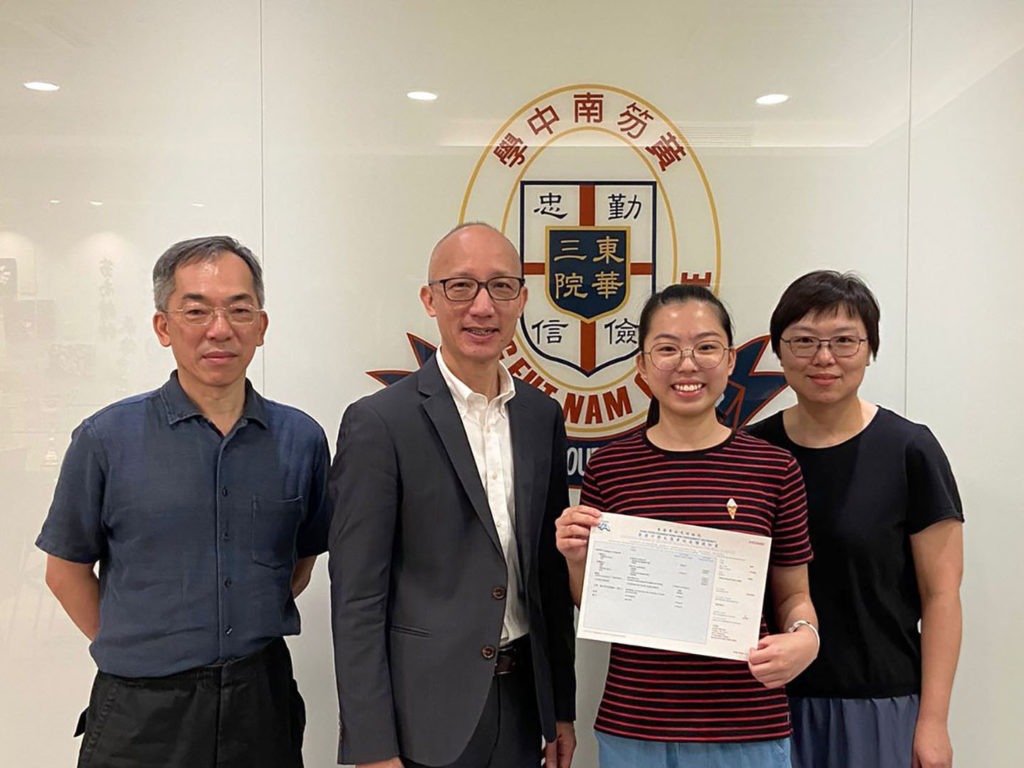Wah Yan College is one of the most prestigious educational institutions in Hong Kong, with a long history of nurturing outstanding students who have gone on to become leaders in various fields. Among its notable alumni is Philip Cheung, a name that resonates with excellence, commitment, and a profound influence on the Philip Cheung Wah Yan Boys’ community. This article delves into the life and legacy of Philip Cheung, his contributions to Wah Yan College, and the impact he has had on the generations of students who passed through the school’s storied halls.
The History of Wah Yan College
Establishment and Early Years
Wah Yan College was established in 1919 by Mr. Peter Tsui Yan Sau, a Catholic layman, with the vision of providing a high-quality education based on Christian values. The school quickly earned a reputation for academic excellence, discipline, and a strong sense of community. Over the years, it expanded its facilities, curriculum, and extracurricular activities to meet the growing needs of its students.
The school’s motto, “Men for Others,” encapsulates its mission to cultivate students who are not only academically competent but also socially responsible and committed to serving others. Wah Yan College has always emphasized holistic development, ensuring that its students grow into well-rounded individuals equipped to contribute positively to society.
Evolution and Expansion
Throughout its history, Wah Yan College has undergone significant changes. Initially, the school was housed in a small building in Wanchai, but as its reputation grew, so did its student body and its need for a larger campus. In 1922, the school moved to its current location in Queen’s Road East, Wanchai, where it has continued to expand and modernize its facilities.
Wah Yan College has always been at the forefront of educational innovation in Hong Kong. It was one of the first schools to introduce a curriculum that combined both Chinese and Western educational philosophies. This unique approach has allowed Philip Cheung Wah Yan Boys to excel not only in academic subjects but also in moral and spiritual development.
Philip Cheung: A Wah Yan Boy Through and Through
Early Life and Education
Philip Cheung was born and raised in Hong Kong, where he attended Wah Yan College. From a young age, Cheung displayed a strong academic aptitude and a deep commitment to the values instilled by the school. His years at Wah Yan College were marked by a strong sense of belonging and a drive to excel in all areas of his life.
Cheung was an active participant in various extracurricular activities, particularly in sports and student leadership roles. His involvement in these activities helped him develop important life skills such as teamwork, leadership, and perseverance—qualities that would later define his professional and personal life.
Academic Excellence and Leadership
During his time at Wah Yan College, Cheung consistently ranked among the top students in his class. His academic achievements were complemented by his leadership roles within the school community. Cheung served as a prefect and was also heavily involved in organizing school events and activities. His peers and teachers alike recognized him as a natural leader, someone who led by example and inspired others to strive for greatness.
Cheung’s commitment to his studies and to his school community did not go unnoticed. He received numerous accolades and awards for his academic performance, as well as for his contributions to the school’s extracurricular programs. These early successes laid the foundation for his future endeavors, both in his career and in his continued involvement with Wah Yan College.
Contributions to Wah Yan College
Alumni Involvement
After graduating from Wah Yan College, Philip Cheung maintained a close relationship with his alma mater. He became an active member of the Wah Yan Past Students Association, where he played a key role in organizing alumni events and fundraising activities. Cheung’s dedication to the school and its community was evident in his tireless efforts to give back to the institution that had given him so much.
One of Cheung’s most significant contributions was his involvement in the school’s development projects. He was instrumental in raising funds for the expansion of the school’s facilities, including the construction of new classrooms, sports facilities, and a state-of-the-art library. Cheung’s efforts ensured that future generations of Philip Cheung Wah Yan Boys would continue to benefit from a top-tier education in a modern and well-equipped environment.
Mentorship and Guidance
Beyond his financial contributions, Cheung also dedicated his time and expertise to mentoring current students. He regularly returned to Wah Yan College to give talks and workshops on various topics, ranging from career development to personal growth. Cheung’s willingness to share his experiences and knowledge with the younger generation made a lasting impact on many students, who looked up to him as a role model.
Cheung’s mentorship extended beyond the classroom. He often provided one-on-one guidance to students, helping them navigate the challenges of academic life and offering advice on their future career paths. His genuine care and concern for the well-being of the students endeared him to the entire Wah Yan community, solidifying his legacy as a beloved mentor and benefactor.
The Legacy of Wah Yan Boys
Building a Strong Network
One of the hallmarks of a Wah Yan education is the strong sense of camaraderie and brotherhood that it fosters among its students. This bond extends far beyond graduation, as Wah Yan Boys continue to support one another throughout their lives. The Wah Yan alumni network is one of the most active and influential in Hong Kong, with members occupying prominent positions in various industries, including business, law, medicine, and education.
Philip Cheung has been a key figure in strengthening this network. Through his involvement in the Wah Yan Past Students Association and his personal connections with fellow alumni, Cheung has helped to build a robust community of Philip Cheung Wah Yan Boys who are committed to helping each other succeed. This network has been a vital resource for many alumni, providing them with opportunities for career advancement, mentorship, and personal growth.
Philanthropy and Social Responsibility
The spirit of giving back is deeply ingrained in the Wah Yan culture, and Philip Cheung has exemplified this value throughout his life. In addition to his contributions to Wah Yan College, Cheung has been involved in numerous charitable initiatives aimed at improving the lives of those in need. His philanthropic efforts have included supporting educational programs for underprivileged children, funding medical research, and contributing to disaster relief efforts.
Cheung’s commitment to social responsibility is a testament to the values he learned at Wah Yan College. His actions serve as an inspiration to other Wah Yan Boys, encouraging them to use their talents and resources to make a positive impact on society. Cheung’s legacy is not just one of personal success, but of a lifelong dedication to serving others and making the world a better place.
The Future of Wah Yan College and Its Students
Continuing the Tradition of Excellence
Wah Yan College has a long-standing tradition of academic excellence, and its future looks bright as it continues to build on this legacy. The school’s commitment to providing a well-rounded education, grounded in Christian values and a spirit of service, remains as strong as ever. With the support of dedicated alumni like Philip Cheung, Wah Yan College is well-positioned to continue nurturing the leaders of tomorrow.
The school’s leadership is focused on ensuring that Wah Yan College remains at the forefront of educational innovation. This includes continuously updating the curriculum to meet the changing needs of society, investing in new technologies, and expanding the range of extracurricular activities available to students. By doing so, Wah Yan College aims to equip its students with the skills and knowledge they need to succeed in an increasingly complex and interconnected world.
Inspiring the Next Generation of Wah Yan Boys
Philip Cheung’s story is one of many that demonstrate the transformative power of a Wah Yan education. His achievements, both during his time at the school and in the years since, serve as a powerful reminder of what is possible when one is guided by the values of excellence, integrity, and service. Cheung’s legacy continues to inspire current students, who look up to him as a shining example of what it means to be a Wah Yan Boy.
As Wah Yan College moves forward, it will continue to draw on the rich history and traditions that have made it one of Hong Kong’s most respected educational institutions. At the same time, the school will remain open to new ideas and approaches, ensuring that it remains relevant and effective in preparing students for the challenges of the future. With alumni like Philip Cheung leading the way, Wah Yan College is poised to continue its tradition of excellence for many years to come.
Conclusion
Philip Cheung’s life and legacy are a testament to the enduring impact of a Wah Yan education. From his early days as a student to his ongoing involvement as an alumnus, Cheung has embodied the values that Wah Yan College seeks to instill in all of its students. His contributions to the school and the broader community have made a lasting difference, and his example serves as an inspiration to current and future generations of Philip Cheung Wah Yan Boys.
Wah Yan College, with its rich history and commitment to excellence, continues to play a vital role in shaping the leaders of tomorrow. The school’s alumni, including Philip Cheung, are living proof of the power of education to transform lives and make a positive impact on the world. As Wah Yan College looks to the future, it will undoubtedly continue to build on this legacy, ensuring that its students are prepared to meet the challenges of the modern world while remaining true to the values that have defined the school for over a century.



